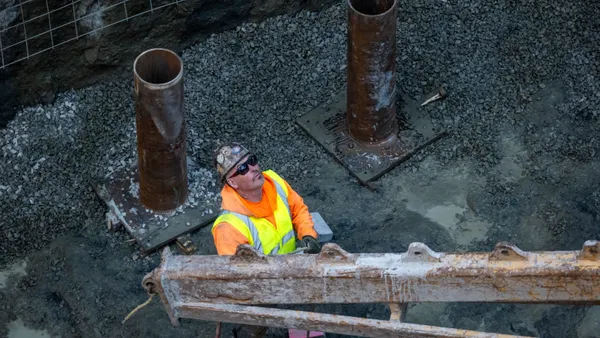Dive Brief:
-
Towns in New Jersey will now have to provide more low- and moderate-income housing to meet the shortage created when the state did not issue measures for additional units between 1999 and 2015, according to NBC 10.
-
The state Supreme Court ruling requires towns to meet a backlog in affordable housing after it determined that the state wasn’t upholding the 1985 Fair Housing Act by continually updating low- and middle-income housing needs.
-
Critics contend towns shouldn’t be responsible for the state’s lack of action, while supporters argue those communities must up their low-income housing quotas.
Dive Insight:
The decision comes as municipalities nationwide look to tackle a widening gap in affordable housing as market-rate prices skyrocket, driven in part by a supply shortage and rising demand.
Major metros like New York are currently experiencing severe shortages and officials are exploring a series of measures to combat the issue, including a tax break plan that aims to entice developers to include more affordable housing in market-rate projects.
In Seattle, the City Council this summer approved regulations mandating builders to incorporate more affordable units in schemes, while a 30-year, $29 million affordable housing bond was green-lighted in November, following a $290 million levy in August.
Portland, OR, is another area of the country experiencing a housing crisis, with the city facing a gap of more than 23,000 affordable units amid low inventory levels and soaring home prices.
In November, voters there gave the thumbs up to a $258.4 million bond that will fund the construction of 1,300 affordable units. That followed a 1% construction excise tax approved in July by the council in a bid to generate an estimated $8 million annually for affordable housing.
A recent report from the U.S. Conference of Mayors found that the acute shortage of affordable homes in Washington, DC, now sees the city with the highest rate of homelessness in the country — more than double the national average.
For more housing news, sign up for our daily residential construction newsletter.













